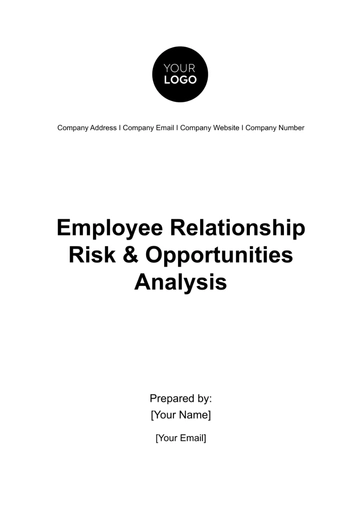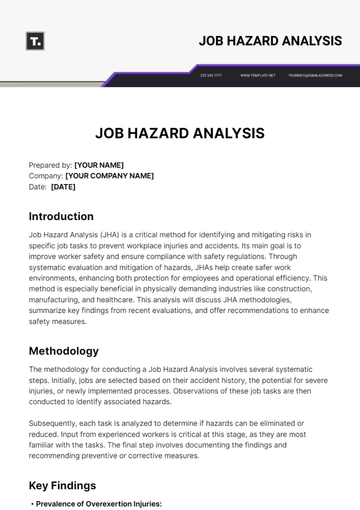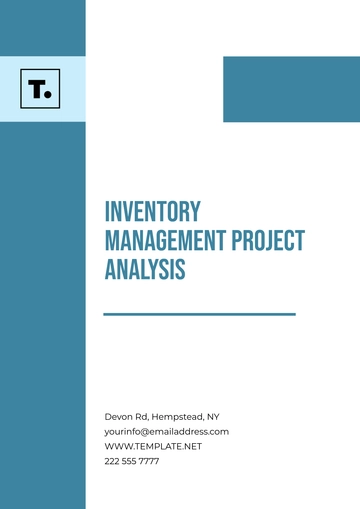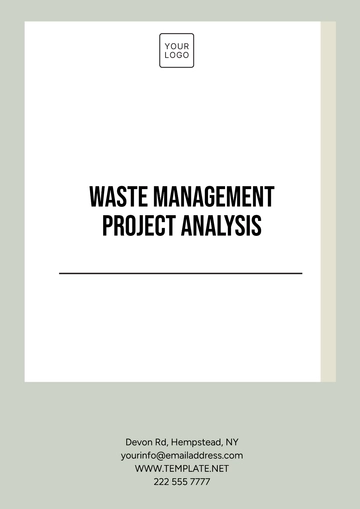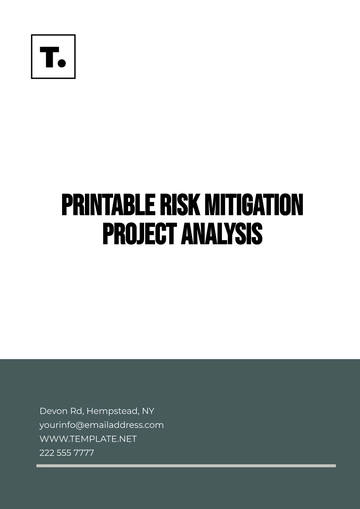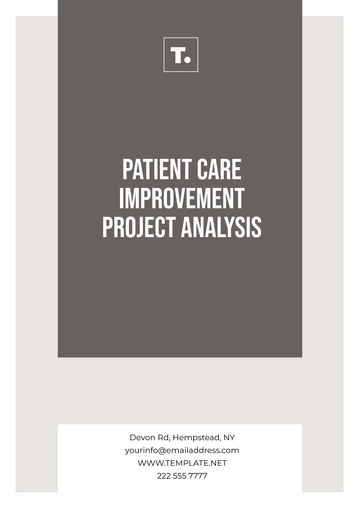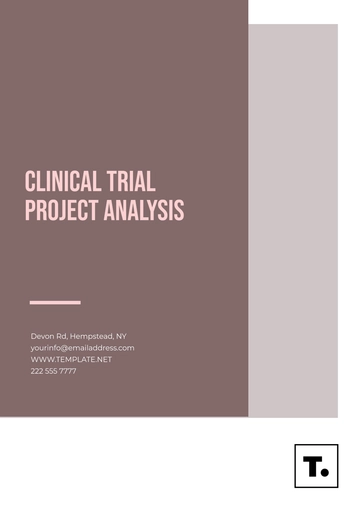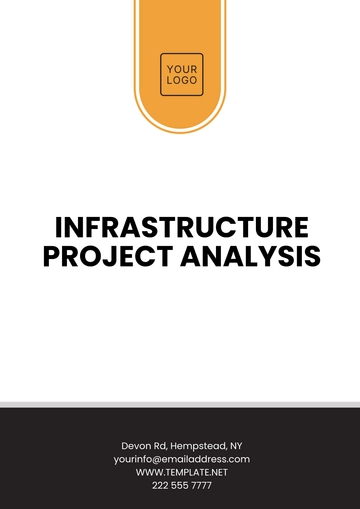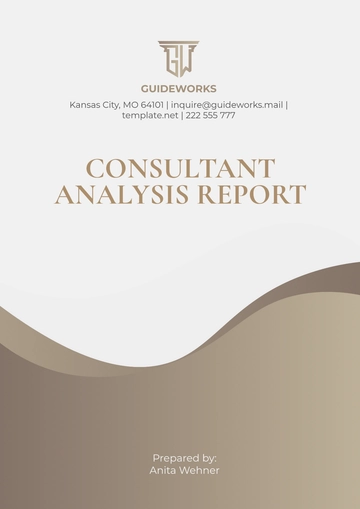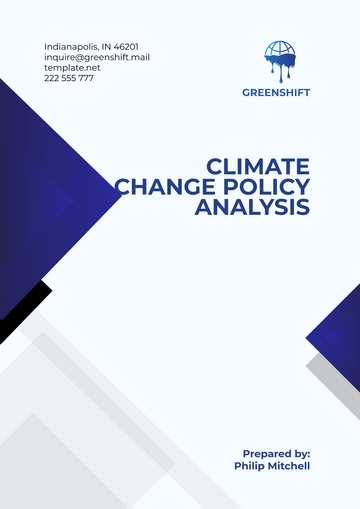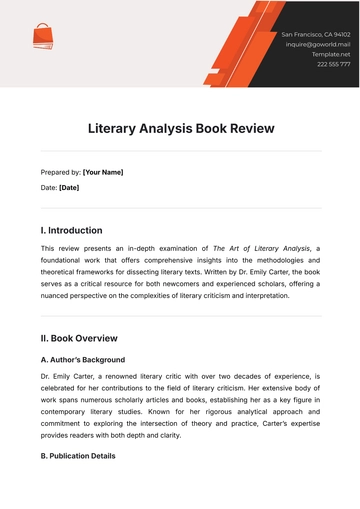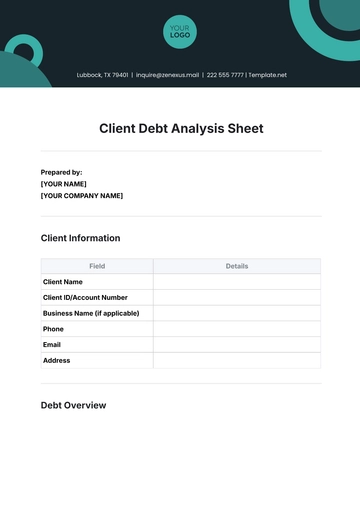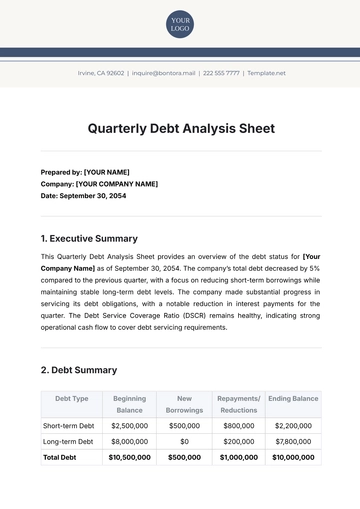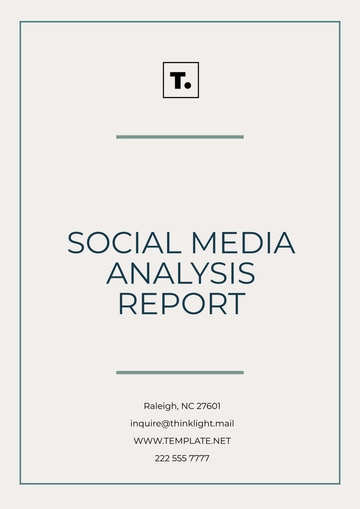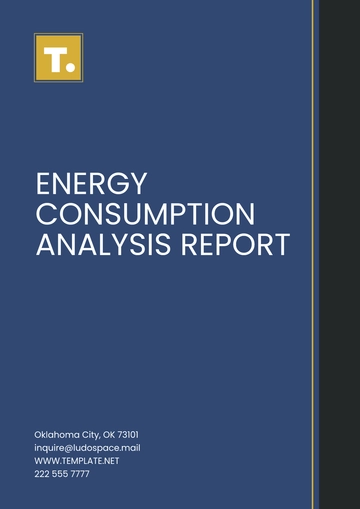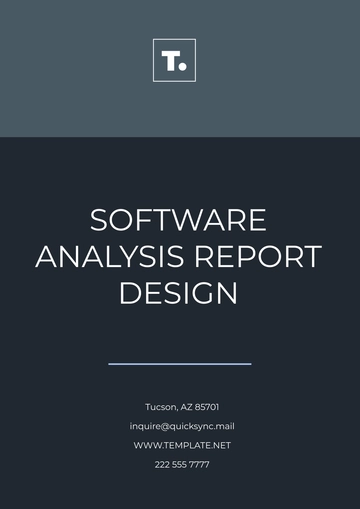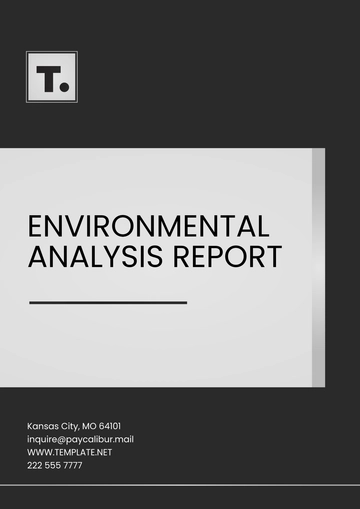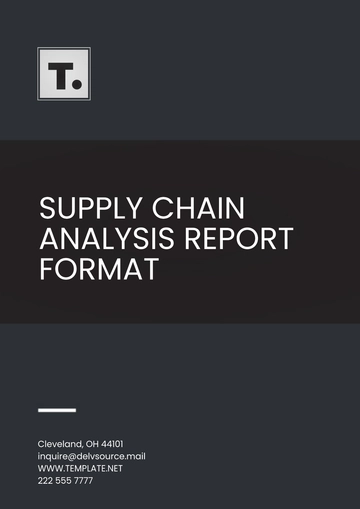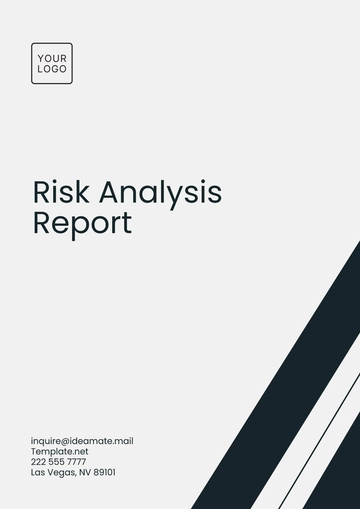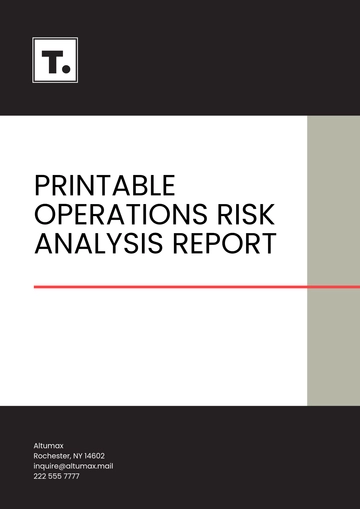Free Financial Compliance Impact Analysis

Prepared by | [Your Name -Title] |
Purpose | To evaluate and manage the financial risks associated with regulatory compliance in [Your Company/Organization]. |
Date | [January 1, 2051] |
Executive Summary
[This Financial Compliance Impact Analysis, prepared for [Your Company], is a comprehensive document designed to address the critical need for stringent adherence to financial regulations in the current complex regulatory environment. It highlights key risks associated with non-compliance, including severe financial penalties, operational disruptions, and potential reputational damage. The analysis identifies specific areas of concern, such as Anti-Money Laundering (AMLA) regulations, Global Data Protection Regulation (GDPR) compliance, and adherence to the International Financial Reporting Standards (IFRS). Through a detailed risk assessment, we have categorized each identified risk based on its likelihood and potential impact, providing a clear understanding of the areas requiring immediate attention. Our risk mitigation strategies are carefully formulated to address these risks proactively, with a focus on implementing advanced monitoring systems, enhancing data security protocols, and ensuring rigorous adherence to financial reporting standards. The document also outlines a robust Compliance Monitoring Framework, ensuring continuous oversight and adherence to these strategies. Conclusively, this analysis not only serves as a guide for maintaining regulatory compliance but also reinforces [Your Company]'s commitment to financial integrity and responsible corporate governance.]
Introduction
[In an ever-evolving financial landscape, [Your Company] recognizes the critical importance of adhering to the latest regulatory standards. This Financial Compliance Impact Analysis aims to proactively address potential risks and ensure our continued commitment to regulatory excellence and financial integrity. Our approach is designed to safeguard our operations against regulatory pitfalls, thereby preserving our market reputation and ensuring long-term sustainability.]
Regulatory Environment
[The current regulatory environment is marked by stringent requirements from both the International Financial Reporting Standards (IFRS) and local regulatory bodies such as the National Financial Oversight Committee (NFOC). Key regulations include the NFOC's Anti-Money Laundering Act (AMLA) and the Global Data Protection Regulation (GDPR) which impose strict guidelines on financial transactions and data privacy.]
Risk Identification
[Identified risks include non-compliance with AMLA leading to hefty fines and legal repercussions, and GDPR breaches resulting in severe data privacy violations. Additionally, failure to adhere to IFRS standards could result in inaccurate financial reporting, affecting stakeholder confidence and inviting legal scrutiny.]
Risk Assessment
[Risk Assessment Table:
Risk Category | Description | Likelihood | Impact | Overall Rating |
AMLA Non-Compliance | Failure to detect and report suspicious transactions | High | High | Critical |
Risk Mitigation Strategies
[Risk Mitigation Strategy Table:
Risk | Mitigation Strategy | Responsible Department | Timeline | Expected Outcome |
[AMLA Non-Compliance] | [Implement advanced transaction monitoring systems] | [Compliance Dept.] | [Q3 2051] | [Reduction in non-compliant transactions] |
Compliance Monitoring and Reporting
[[Your Company] will adopt a robust Compliance Monitoring Framework comprising regular internal audits, real-time transaction monitoring, and periodic compliance training sessions. Reporting procedures will include quarterly compliance reports to the Board of Directors, and immediate reporting of any significant compliance breaches to relevant authorities.]
Conclusion
[This Financial Compliance Impact Analysis underscores [Your Company]'s unwavering commitment to upholding the highest standards of regulatory compliance. By identifying, assessing, and mitigating financial risks, we not only protect our company from potential legal and financial repercussions but also fortify our reputation as a trustworthy and responsible entity in the financial sector.]
- 100% Customizable, free editor
- Access 1 Million+ Templates, photo’s & graphics
- Download or share as a template
- Click and replace photos, graphics, text, backgrounds
- Resize, crop, AI write & more
- Access advanced editor
Evaluate the effects of compliance regulations with the Financial Compliance Impact Analysis Template from Template.net. This editable, customizable template analyzes how compliance affects your business operations. Ideal for compliance officers, it assesses impacts on processes, costs, and strategies, guiding adjustments to maintain efficiency while adhering to regulatory standards.
